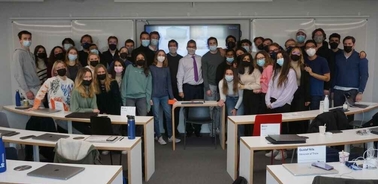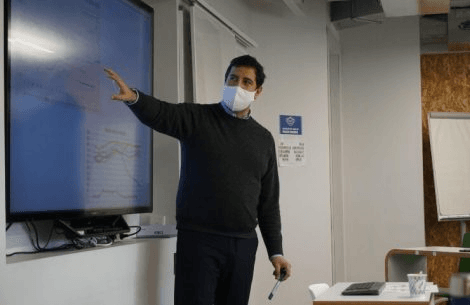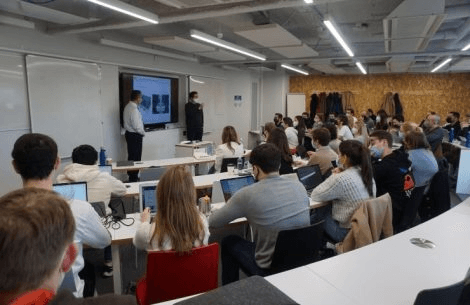- Home
- News And Events
- What’s Going On
- Uniqlo’s Supply Chain Expert Gives Tips To Ie Business School Students
UNIQLO’s Supply Chain Expert Gives Tips to IE Business School Students

The talk with management students focuses on the importance of a flexible supply chain.
Juan David Ramírez, the supply chain director for UNIQLO Europe, visited IE to talk to Master in Management students about UNIQLO’s supply chain model, as well as their sustainability measures.
UNIQLO’s supply chain model differs from other big competitors such as Inditex, in that they have one warehouse in each market and they ship products to the stores every day, six times per week. On the other hand, Inditex has one centralized warehouse in Spain and has full control over their inventory and allocates the inventory according to sales. “No model is better than the other, both companies make great profits,” said Ramírez.
“The most important thing is to define your supply chain according to your business model because if you don’t have this flexibility, when an external factor comes into play, such as the pandemic, your profits and loss will be greatly affected.”
Juan David Ramírez, Supply Chain Director for UNIQLO Europe
Another key element he highlighted for a successful supply chain is its ability to turn 100% to omni channel. This means that the company is able to transfer the inventory from the store to e-commerce and allow the customer to return any order they place online to any store, and vice versa. Failing to do so, he said will take the company out of the market, as the customer will prefer another company that allows them to do this.
Ramírez said that one of the most important aspects for a company’s success is that the investors trust the message the company is communicating. For UNIQLO, the most important message right now is regarding the company’s sustainability measures and how they will be implemented in the following years and the role they are going to play in business development.
“UNIQLO is announcing that by 2030, there will be a 50% reduction of the company’s emissions and by 2050, they will have zero emissions. This is a very open commitment that the company cannot fail to achieve, otherwise, investors will lose their trust in the company,” said Ramírez.
The executive said that although UNIQLO is currently a very profitable company, it has weathered many failures in order to perfect its supply chain. UNIQLO founder Tadashi Yanai has said, “failure should not be seen as failure, but as a challenge,” continuing that failure in markets such as China, United States, and Britain is what pushed him to improve the company’s supply chain.

